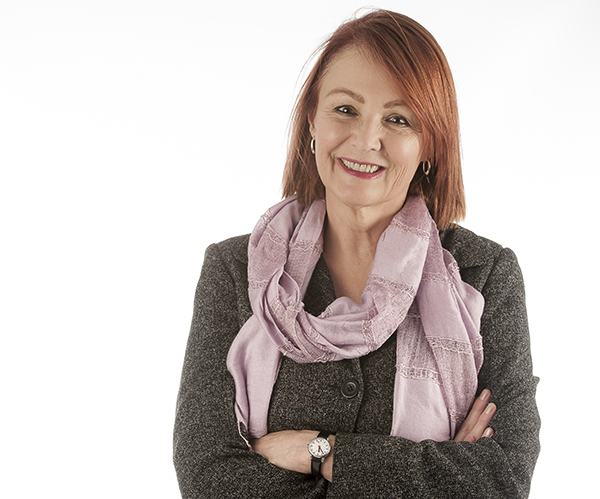Latest News Archive
Please select Category, Year, and then Month to display items
19 November 2018
|
Story Charlene Stanley
|
Photo Charlene Stanley
 Prof John Mubangizi, Dean of the Faculty of Law, encouraged delegates at the Fifth Annual International Mercantile Conference to share ideas on best international practice in their various fields.
Prof John Mubangizi, Dean of the Faculty of Law, encouraged delegates at the Fifth Annual International Mercantile Conference to share ideas on best international practice in their various fields.
“Don’t say anything online that you wouldn’t want plastered on a billboard with your face on it.”
This famous quote by international tech expert Erin Bury should be a guiding light when it comes to online habits in the workplace, according to Francois Cilliers, UFS Lecturer in Mercantile Law.
In his presentation Could Social Media be the Gateway to Employment Discrimination? he warned that employees have a responsibility not to bring their employers in disrepute through their comments on social media.
“Posts, updates, tweets, and comments are considered to be publications and can therefore never be seen as privileged information,” he explained.
Responsibility on employees and employers alike
He pointed out that employers also had a responsibility regarding the way in which they use the information about prospective employees obtained via social media.
“Nowadays, approximately 75% of companies hire through social media. In the US, recruiting companies spend hours researching candidates, making full use of what they can find on social media. It was found that 50–80% of employers frowned upon posts and pictures featuring drug and alcohol abuse, profanity, and bad grammar.”
He warned that employers needed to tread lightly, as a decision not to employ someone as a result of information on the prospective employee’s political views and sexual orientation could constitute unfair discrimination as set out in the Employment Equity Act.
“An employer who wishes to use a screening process (utilising social media) has to prove that the information and the process is objectively necessary and can be justified with reference to the inherent requirements of the job,” he explained.
“As technology and electronic systems advance, so too should the applicable labour laws.”
Cilliers’ presentation formed part of the Fifth Annual International Mercantile Law Conference recently hosted by the Faculty of Law on the Bloemfontein Campus.
Incorporating new technology in teaching and research
“This conference is an opportunity to share ideas on best practice in what is perceived as a ‘difficult’ field within Law,” said Prof John Mubangizi, Dean of the Faculty of Law, as he opened the proceedings. Topics in the discussion sessions ranged from Racism in the workplace and The underrepresentation of females in the judiciary, to Decriminalisation of cannabis: A recipe for healthy employer-employee relations?
“Conferences such as these help us to take advantage of the newest developments in technology to advance our teaching and research,” said Prof Mubangizi.
“To quote Einstein: ‘We can’t solve problems by using the same kind of thinking we used when we created them.’”
Research chair into Higher Education gets boost for five more years
2017-11-21

Prof Melanie Walker, Director of the Centre for Research on
Higher Education and Development (CRHED).
Photo: Supplied
The research Chair in Higher Education and Human Development within the Centre for Research on Higher Education and Development (CRHED) at the University of the Free State has secured funding for another five years. It follows a favourable evaluation by the South African Research Chairs Initiative (SARChI) of the research project at the UFS.
The Director of the Centre, Prof Melanie Walker, says she is delighted by the recognition of the Chair's hard work and significant productivity. “This new round of funding secures the centre and its activities for the next five years.”
Under the auspices of the Chair, research is conducted on higher education, inequalities and social justice, and how or if universities foster the human capabilities and aspirations of students. In essence, the research studies whether higher education makes a difference to the lives of students, their families and communities. Prof Walker says the Chair's projects look at issues of access, participation and transitions into work, as well as gender, race and social class. The research uses quantitative and qualitative methods and includes a strand of participatory research projects with students.
Prof Walker says through the Chair research project, and the Centre, researchers have developed extensive international links and produced international quality research and publications. “We foster high-quality PhD graduates as a new generation of social science academics.” The Chair has in the first five years produced 10 PhDs and four master’s students.
The project in the next five years will continue with its focus on higher education and human development research. Prof Walker says all the research efforts seek to contribute to more justice in society and universities and to contribute to debates, policy and practices in higher education and a scholarly knowledge base.
The Research Chairs Initiative aims to improve the research capacity at public universities to produce high-quality postgraduate students, research and innovative outputs. The assessors looked at features such as the number of students the research entity had trained and how many publications the research team had produced.